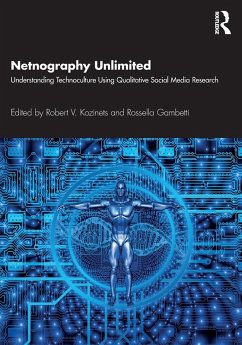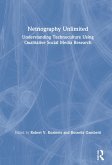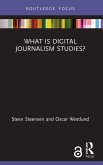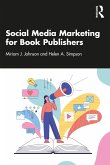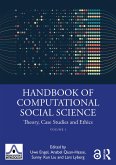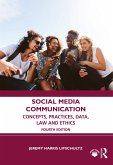Netnography has become an essential tool for qualitative research in the dynamic, complex, and conflicted worlds of contemporary technoculture. Shaped by academic fields, industries, national contexts, technologies and platforms, and languages and cultures for over two decades, netnography has impacted the research practices of scholars around the world.
In this volume, 34 researchers present 19 chapters that examine how they have adapted netnography and what those changes can teach us. Positioned for students and researchers in academic and professional fields, this book examines how we can better use netnographic research to understand the many ways networked technologies affect every element of contemporary business life and consumer existence.
Netnography Unlimited provides an unprecedented new look at netnography. From COVID-19 to influencer empathy, gambling and the Dark Web to public relations and the military, AI and more-than-human netnography to video-streaming and auto-netnography, there has never been a wider or deeper treatment of technocultural netnographic research in one volume. Readers will learn what kind of work they can do with netnography and gain an up-to-date understanding of the most pressing issues and opportunities. This book is a must-read for those interested in technology, research methods, and contemporary culture.
In this volume, 34 researchers present 19 chapters that examine how they have adapted netnography and what those changes can teach us. Positioned for students and researchers in academic and professional fields, this book examines how we can better use netnographic research to understand the many ways networked technologies affect every element of contemporary business life and consumer existence.
Netnography Unlimited provides an unprecedented new look at netnography. From COVID-19 to influencer empathy, gambling and the Dark Web to public relations and the military, AI and more-than-human netnography to video-streaming and auto-netnography, there has never been a wider or deeper treatment of technocultural netnographic research in one volume. Readers will learn what kind of work they can do with netnography and gain an up-to-date understanding of the most pressing issues and opportunities. This book is a must-read for those interested in technology, research methods, and contemporary culture.

